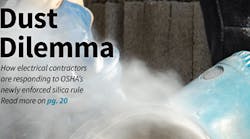The Hazard Communication Standard (HCS) contains many requirements for your employer to meet. But you have some responsibilities, too. Under this federal regulation, you are responsible for:
- Knowing the health and safety information related to the chemicals you use.
- Using that health and safety information.
- Using your safety training on the job.
- Injuring you, then your reward is reduced
- Someone else, then you may be at the losing end of civil litigation.


